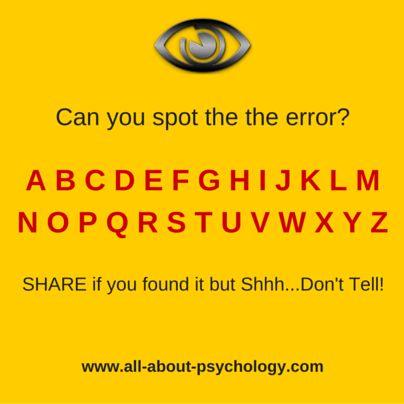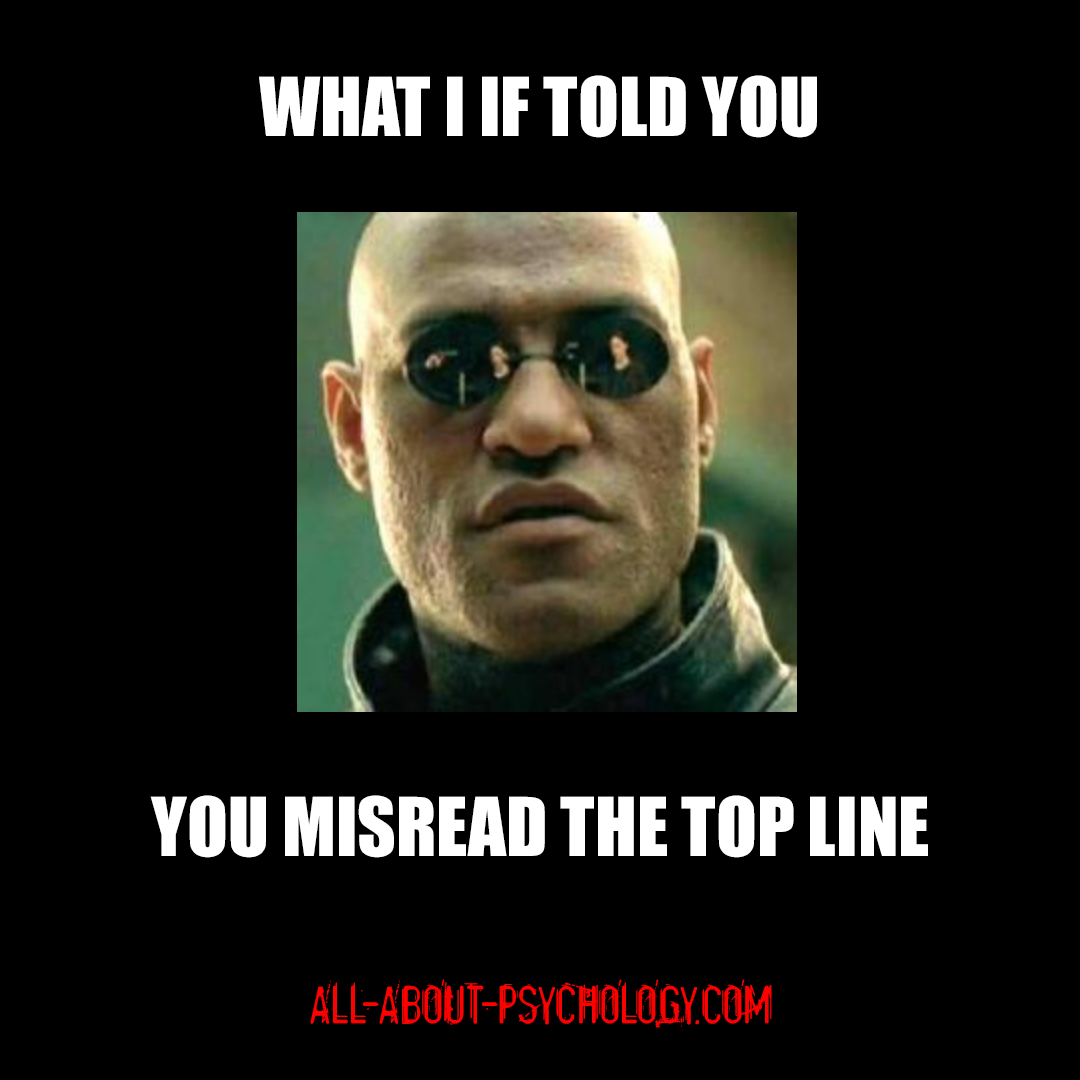The Proofreader's Illusion
David Webb (Owner, writer & host of All-About-Psychology.Com)
The proofreader's illusion relates to our failure to notice errors when reading typed materials! No one it seems is immune from this mischievous trick of the mind. These glaring errors even escape the attention of professional proofreaders, whose job it it to spot them! So much so, it led the renowned proofreader, Annie Smith to write a poem on the subject, published in 1871, titled Proof-Reader's Lament. Here are the first two verses.
What news is this falls on my ear?
What next will to my sight appear?
My brain doth whirl, my heart doth quake
Oh, that egregious mistake!
"Too bad! too bad!!" I hear them cry,
"You might have seen with half an eye!
Strange! passing strange!! how could you make
So plain, so blunderous a mistake!
Research into misreading the printed word has a long history within psychology. For instance, in his book 'An Introductory Study of the Structure and Function of Human Consciousness (1904), James Rowland Angell's notes that misreading of printed words are among the most frequent illusions. Adding that:
"We sometimes read the words put before us as we have reason to suppose they ought to be, not as they are. Thus, if we come across the word mispirnt, many of us will read it in all good faith as misprint and never see the difference."
The term proofreader's illusion itself has been around in the psychological literature for well over a hundred years. e.g.
Pierce, A. H. (1915). Imagery illusions: The non-visual character of the proofreader's illusion. Psychological Bulletin, 12(1), 1-9.
The Proof-Reader's Illusion and General Intelligence June E. Downey The Journal of Philosophy, Psychology and Scientific Methods Vol. 15, No. 2 (Jan. 17, 1918), pp. 44-47.
As a result of an enduring interest in the proofreader's illusion, it's a topic which can be employed to explore a range of perceptual and cognitive processes e.g. top-down processing and perceptual set. It's also a topic that allows students to reflect on how things such as habit formation and familiarity can affect how we construct the world around us.
Teaching Ideas
The proofreader's illusion offers an excellent way of teaching students about the experimental method in psychology. For instance, many professional proofreader's claim that reading text out loud will help you spot errors that you would have otherwise missed if you had been reading the text silently in your head.
This is just one of many proofreader's illusion hypotheses that you could get your students to test by way of a simple experiment. Better still, you could ask your students to devise and test their own hypothesis by designing an experiment as part of a formal activity or assessment.
A Final Test
Now you know all about the proofreader's illusion, I'm sure you won't have any trouble spotting the error below! You might want to let your family and friends have a go though, as you'll be amazed how long it will take some of them to spot it.

About The Author
David Webb is the owner, writer and host of three websites built around his teaching and research interests; including All-About-Psychology.Com which receives over two million visits a year.
A passionate promoter of psychology through social media, over 800,000 people follow his psychology Facebook page and he is featured on the British Psychological Society list of the 100 most followed psychologists and neuroscientists on Twitter.
A bestselling author, his published work includes: The Psychology Student Guide - The Incredibly Interesting Psychology Book and, On This Day in Psychology.
This cognitive error T-Shirt is available from Amazon (prime eligible) in a range of colors for women and men. Sales help support this website, which has been providing free and comprehensive information and resources for psychology students and educators since 2008.
Recent Articles
-
Tourettes: Understanding Tourette Syndrome Beyond Stereotypes
Feb 23, 26 06:01 AM
Learn what tourettes really is, why swearing is a myth for most, and how education reduces stigma around Tourette syndrome. -
Psychological Impact of Catastrophic Injury & Recovery
Feb 17, 26 02:26 AM
Explore the psychological impact of catastrophic injury, including trauma, identity shifts, resilience, and long-term mental health recovery. -
Psychology Articles by David Webb
Feb 10, 26 06:31 AM
Discover psychology articles by David Webb, featuring science-based insights into why we think, feel, and behave the way we do.
Please help support this website by visiting the All About Psychology Amazon Store to check out an awesome collection of psychology books, gifts and T-shirts.
Go From The Proofreaders Illusion Back To The Home Page






